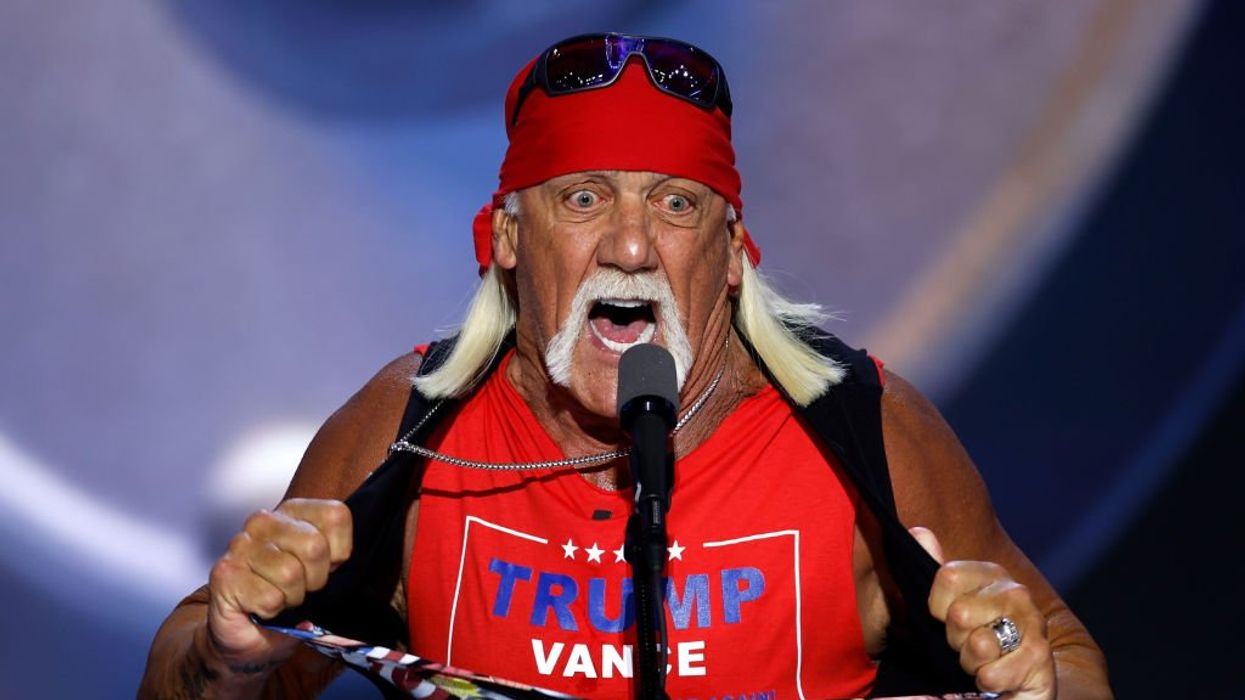
Chip Somodevilla/Getty Images

Liberals mocking the redneck and the wrestler as tired nostalgia acts are, as usual, missing the point.
On the final night of the Republican National Convention last week, aging pro wrestler Hulk Hogan took to the podium and performed his signature move of ripping off his tank top.
As he revealed the Trump/Vance tank top beneath, he exhorted the crowd, "Let Trumpamania run wild, brother!"
Millennials are the last generation to remember the glories of pre-digital life, the paradoxical freedom of having fewer choices. It's no wonder they feel nostalgic for the emo bands they used to love.
As with anything in Trump's orbit, liberals and conservatives saw this moment very differently.
For "The Daily Show," the appearance of the "washed-up fake wrestler" at the RNC was yet another indication of the irredeemable tackiness of Trump world and its inability to land anyone with the slightest cultural cachet. "I think Trump just locked up the vote of every teenager in 1992," quipped host Jordan Klepper.
Conservatives, of course, were in on the joke. The goofy, tongue-in-cheek nostalgia of having the Hulkster prepare the way for Trump's big, post-assassination-attempt comeback was the point. In the meme-sphere, Hogan killed it.
Klepper also mocked the performance by Kid Rock, who performed a Trumpified version of his almost 25-year-old hit "American Badass," complete with a chant echoing Trump's call to "fight!" as the Secret Service hustled him off the Butler, Pennsylvania, rally stage.
Again, Klepper's jabs didn't really land. Rock certainly wasn't selected with the approval of an outlet like "The Daily Show" in mind.
Still it's worth asking: why all the oldies acts?
Consider that both WWE and rap-rock peaked at the end of the 20th century, which was also more or less the the peak of the pre-internet, American monoculture. While neither Rock nor Hogan commands the attention he did in his prime, in today's fractured entertainment landscape, hardly anyone does.
The wrestler and the redneck are living embodiments of a different, more unifying sort of pop culture, before everything got so politicized. Trump himself used to enjoy this kind of apolitical fame. Most notably with his reality show but also with his many movie and TV cameos before that.
Like Trump, both Hogan and Rock exude a kind of cheerful vulgarity, one far removed from today's ideologically driven displays of "LGBT awareness" and the like.
Hogan is an especially potent symbol in this regard. He engaged in vice (making a sex tape with his friend and her wife) the old-fashioned way — in private. It was the left-leaning website Gawker that took it public, no doubt emboldened by Hogan's low status among media tastemakers. But then billionaire Peter Thiel took up Hogan's case and used it to put the sneering hipsters out of business.
Democrats might laugh at RNC geriatrics rallying around such celebrity dinosaurs, but what would it look like for the GOP to court younger generations, especially at a legacy-media-type event like the party convention? Gen Z has no mass culture; it's broken up into specialized "scenes" that are all online.
Millennials are the last generation to remember the glories of pre-digital life, the paradoxical freedom of having fewer choices. It's no wonder they feel nostalgic for the emo bands they used to love.
"I'm not supposed to be here tonight," said Trump as he took the stage to accept the nomination. It was a nice bit of serendipity that his opening acts also weren't supposed to be there, in a sense. But like Trump, and the many Trump supporters the culture has done its best to leave behind, they're survivors — relics of a time when shared cultural and commercial incentives brought Americans together.
Aaron Cummings